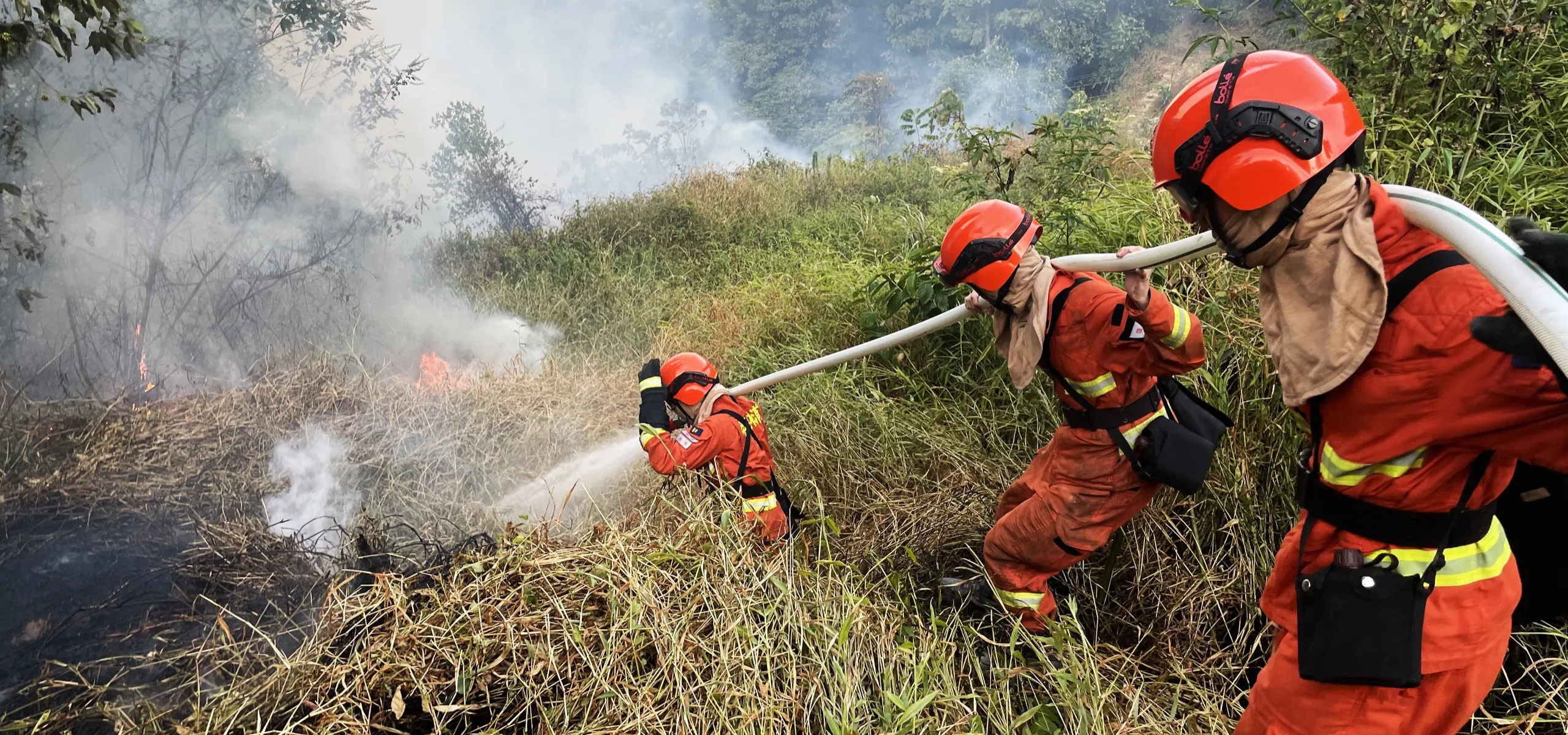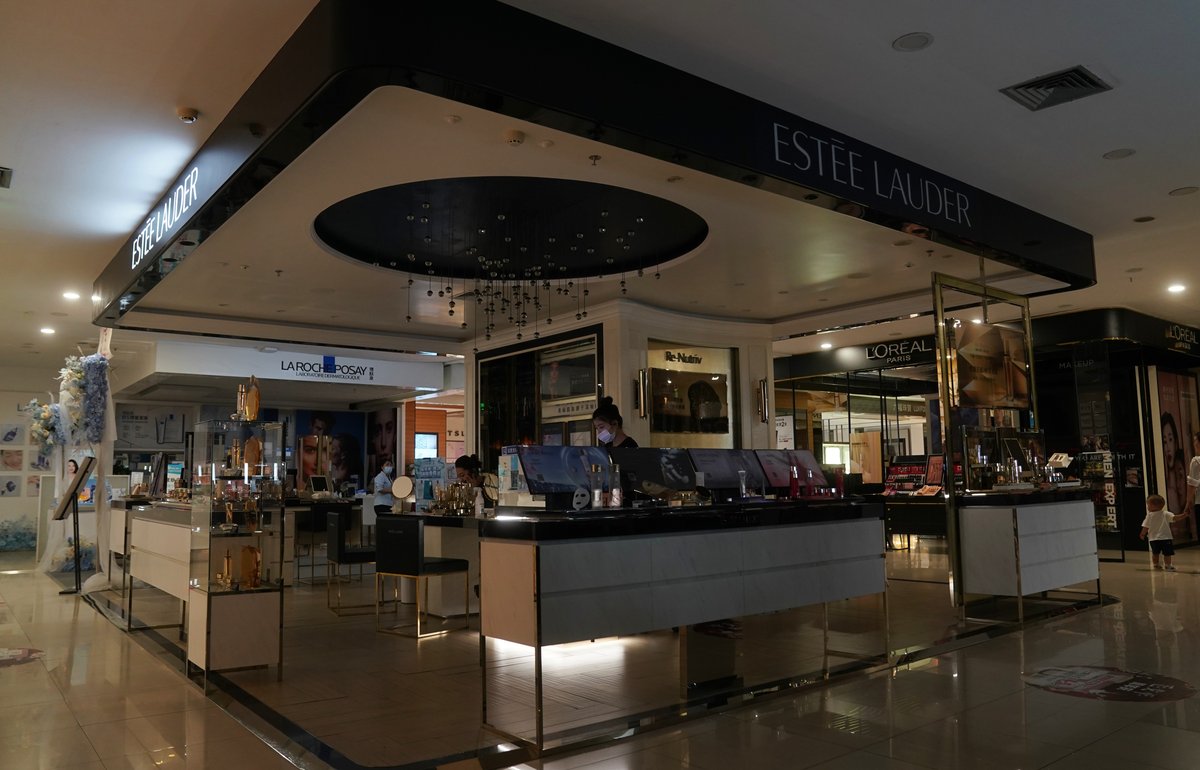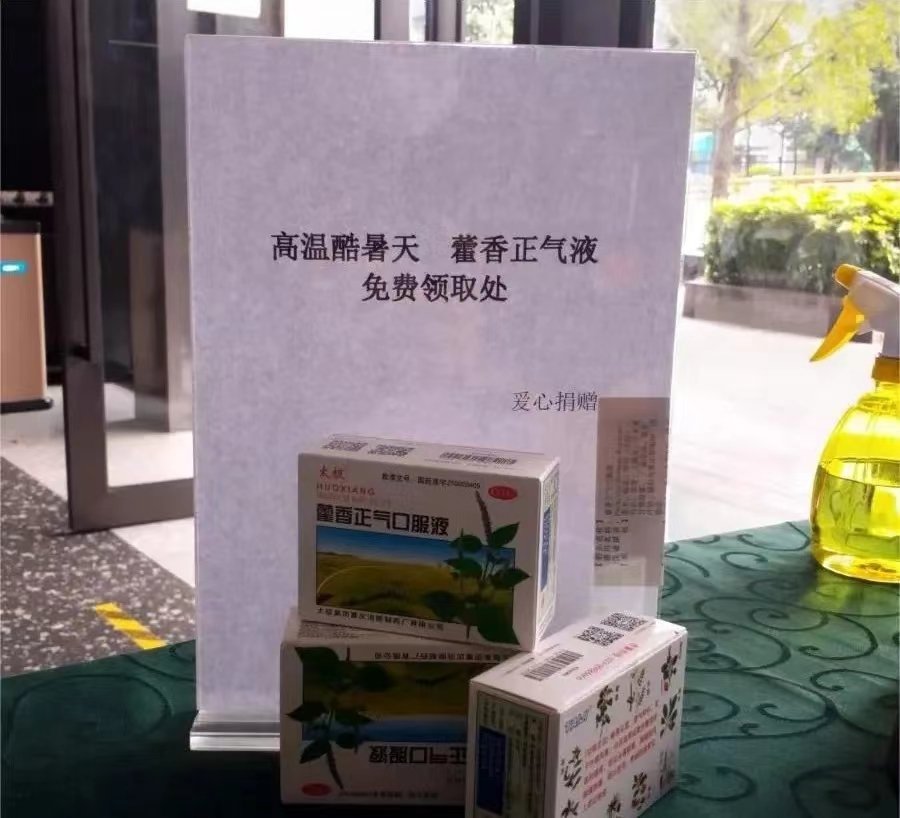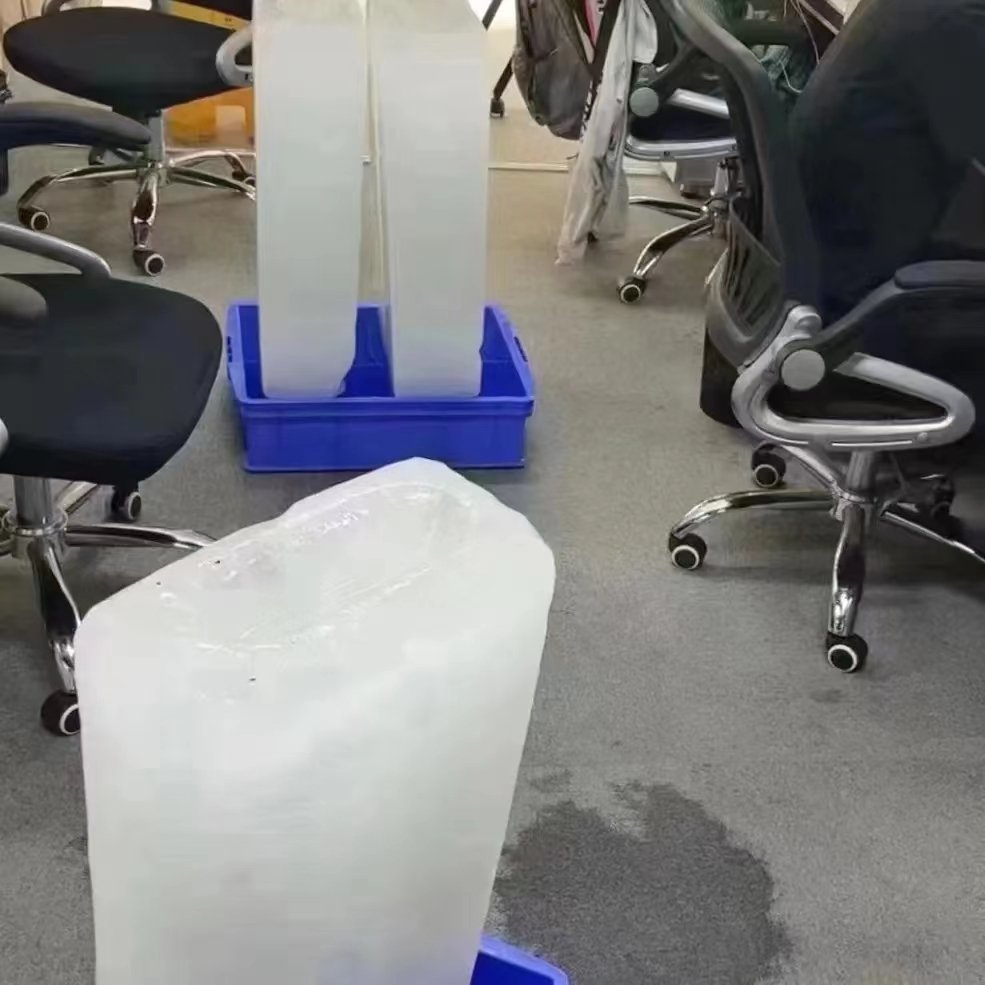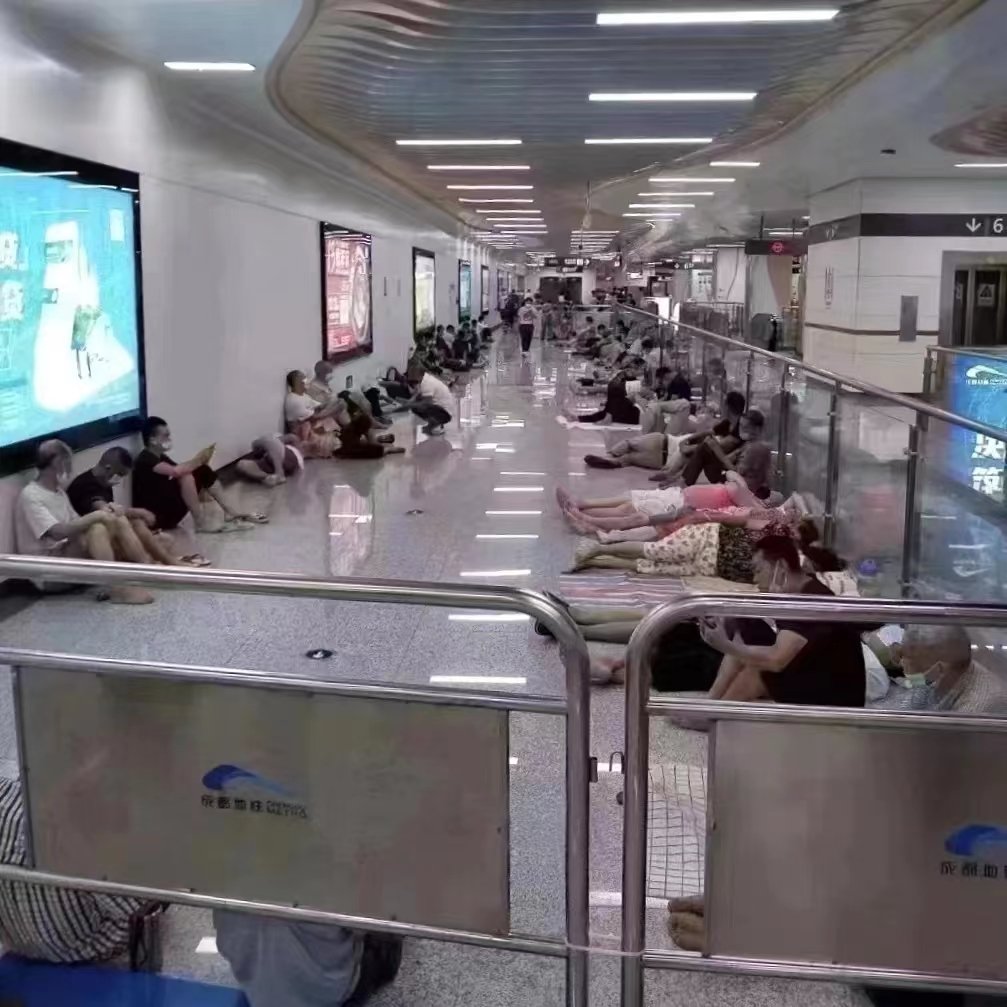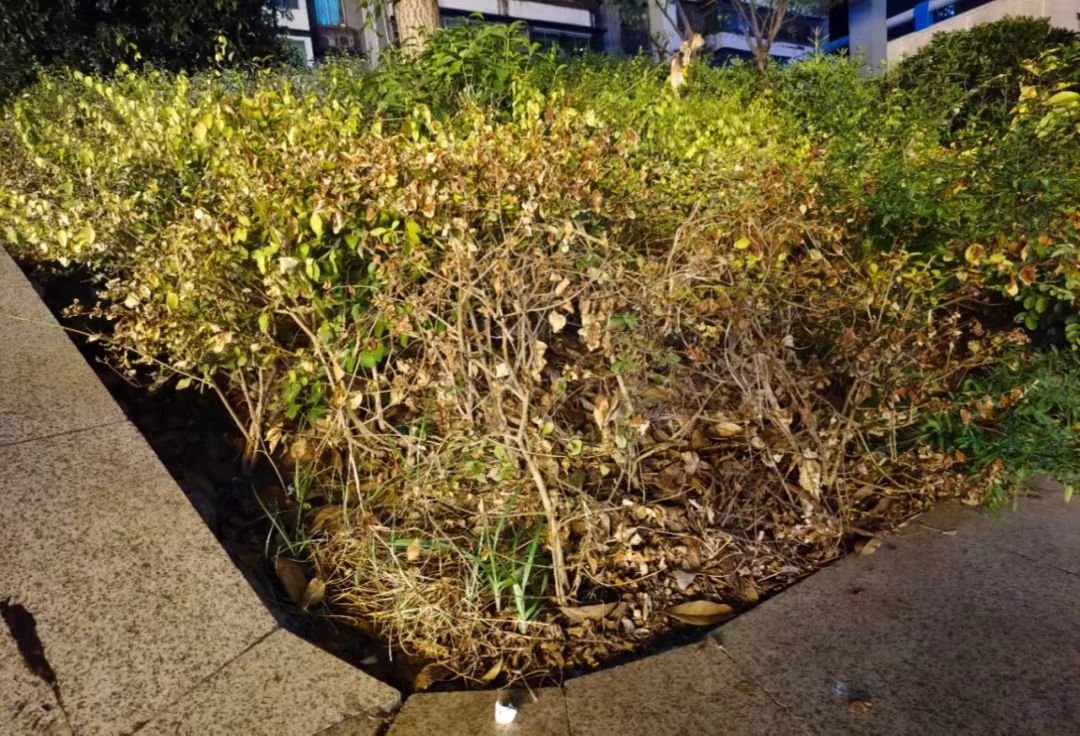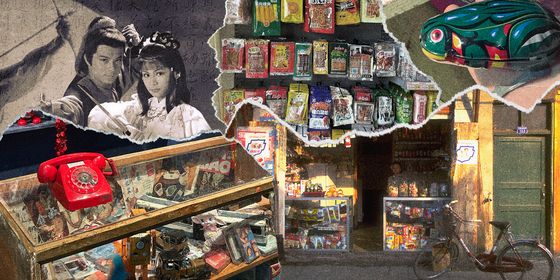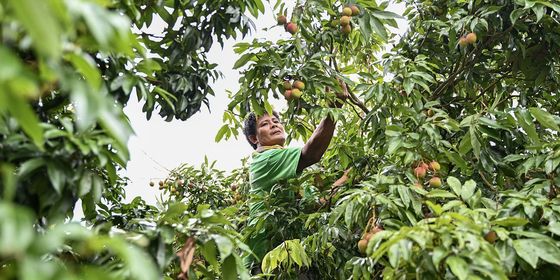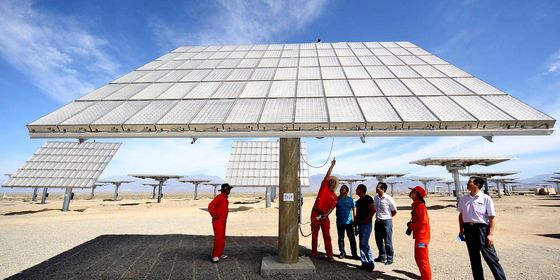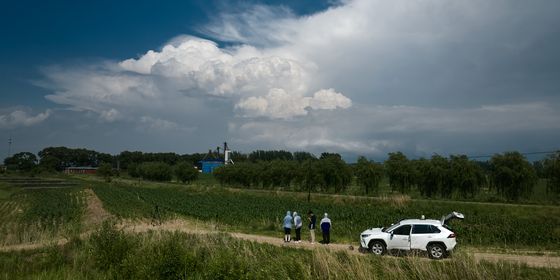Ordinary people from Chongqing and Sichuan share how they survived the heat waves and wildfires
We all know that summer is hot, but how many of us have actually experienced extremely hot temperatures that persist day after day without relief? How will it affect how we live our lives, and what does it make us feel?
This past summer, we’ve watched wildfires burn in the mountains above the southwestern city of Chongqing, and reports of persistent high temperatures exceeding 40 degrees emerged from the adjacent Sichuan province, and all around southern China and the Northern Hemisphere. In August, Story FM asked readers to submit their stories of how they managed to survive these extreme conditions, and how this caused them to rethink their lifestyle and the future of the planet:
-1-
Listeners’ Voices: Living on High
Xiaoman: I’m not usually afraid of hot temperatures, and I rarely sweat. But for the last two to three weeks, I’ve been afraid to wear dark shirts, embarrassed by the white sweat stains down the front and the back.
Due to the rations on electricity, we aren’t allowed to lower the air-conditioner settings in our office below 29 degrees. It’s even worse in the cafeteria: 33 degrees. But even that’s a breath of fresh air compared to the outside—if you open the window, hot winds rush in and the temperature could reach 40 degrees.
Wanwan: All commercial and industrial electricity is cut off. My father owns a small business, and they can only turn on the electricity to unlock their front door once in the morning and once in the evening. They have no electricity the rest of the time.
This is very hard on small businesses. Even on the hottest days, we can only keep our doors open. There’s no air-con, no electrical fans, until you close for the day.
Xiao L: The first day the fires started burning in Chongqing, you could catch the smell of scorched grass throughout most of the city. I live about 20 kilometers from the place the fires started. When you swept the floor, you could see the ash on the ground. If you touched it, it blackened your hand.
Xiao Hao: In Chongqing, in Sichuan, you could die from having no air-conditioning in the summer. But because of energy rationing, everyone has to raise the temperature settings on their air-con units. In my house, it’s usually set at 28 degrees, and we only turn it on when we go to sleep at night.
In the daytime, we open our windows and fan ourselves, and that’s how we get through the day. The owners of those businesses that have had to close make food to take to the firefighters. Some of them used to be kids that went joyriding in the streets. Now, they’re helping to transport supplies on their motorbikes.
Everybody is doing their part to help. I think that’s what gives meaning to life.
Besides these voices from our listeners, yesterday morning we called a woman in Chongqing who operates a homestay on a farm in the Jinyun Mountains, where the fires were burning. She and her husband have been volunteering at the fire-rescue sites, and all their staff have been mobilized to bring food and drinks to the workers there—anything they’re able to transport. The day before, the flames were intense, and they didn’t return home until 11 at night.
In the disaster zone, in the areas affected by high temperatures, everyone is in a state of stress regardless of their profession. At all times, they are taking precautions to prevent big losses to their livelihoods.
-2-
“I pray as I work”
My name is Wangwang. I am an entry-level civil servant in Chongqing.
Since the start of August, all the civil servants at my level have been assigned shifts providing 24-hour firefighting, disaster relief, and epidemic prevention services to the public.
At 4 or 5 this morning, I saw some people surreptitiously burning leftover cornstalks in the mountain. I saw them with flashlights, crouching on the slope. The winds were high in the early morning, and with a whoosh, the flames rose high.
I don’t understand their stubborn insistence on burning cornstalks. A few days ago, a colleague, who was going door-to-door publicizing fire-prevention knowledge, met an old granny living alone who said, “If you say I can’t burn them at night, then that must mean I can burn them during the day!”
For the past three days, the word I most frequently saw in my WeChat Moments feed was “firefighting”—there’s another fire here that we must fight; we must transfer some people to fight fires over there.
I’ve been praying, “Please, let it rain, let the fires stop, let the pandemic end.” I pray as I work, as I battle the epidemic, fight high temperatures, and put out fires in addition to my regular duties.
Today is another brilliantly sunny day. I hope it rains soon.
-3-
A Fruit Farmer’s Unlucky Year
People call me Brother Lü. I’m 36. They say that the year of your zodiac sign is unlucky, and I’ve had quite a year.
I studied geology in university. I used to be a geological engineer, and worked in Changsha, Hunan province, for a few years. The work was too formulaic for my tastes, so I decided to return home to Chongqing and start my own business. I rented a few mu of land in Dazu district and planted mandarin oranges, becoming part of a new generation of farmers.
Here on my farm, I’ve had 60 consecutive days of high temperatures and no rain. At first, I was still hoping for rain. By late July, I was staying up all night to water the trees. Luckily, over a month later, we still have water in our area. But it’s not going to last long.
At first, we got our water from the creek beside our farm. Now, we travel over a kilometer to fetch it. I watch my trees wither up day by day. In the beginning, I wanted to save this year’s orange crop. Now, I’ll be happy if we can save the trees.
I just came back from another all-nighter on the farm. Because of the high temperatures in the daytime, we do our watering from 8 p.m. to 4 a.m. the next morning. Sometimes, my employees work overtime until 6 a.m., watering until dawn breaks.
We don’t have an automatic watering system, so we rely on a machine to pump water. Pairs of workers drag the hose, watering the trees one by one. We have 40,000 trees. The workers are local farmers who’ve rented out the land to us. Nobody wants to stay up all night watering trees, but they sympathized when they heard about our struggles, so they’ve come to help out.
The villages have a huge aging problem. They have been hollowed out of young people. Some of the workers in our fields today are 70 years old; the 50-year-olds are considered “young” workers in their prime.
One day, an old granny told me, “It’s heaven’s will that we won’t eat this year. I’m over 60, and I’ve never seen a drought this bad. Last year that frost destroyed your harvest. This year the fruits were growing so well; I never imagined something like this would happen. We all wish you well; otherwise, what’s the point of being a college student giving up everything to come to the village?”
Normally, according to the growth cycle of the mandarin orange, July and August should have been a slack period for me. I would usually take this time to travel with my family. My daughter is 4, and I want her to see more of the world. But this year, we couldn’t go anywhere. If ever the water ran out, my trees wouldn’t last more than a few days.
I’m still in the investment phase of my business, paying off the overhead from renting the land and my workers’ salaries. If we don’t make a profit this year, I can’t keep going.
-4-
A Security Guard’s Observations
My name is Chris. I work as a security guard in an office building in Gaoxin district, Chengdu.
Lately, at every staff meeting, my supervisor has been telling us, “Everybody should be taking steps to prevent heatstroke. Before your shifts, drink two bottles of Huoxiang Zhengqi [a liquid herbal medicine]. The moment you feel dizzy or nauseated, call us on the radio, and take a break inside the security booth.”
In a building like mine, only the property management office and the surveillance system are guaranteed electricity. Everywhere else it is rationed. When I’m on duty in the lobby, I notice fewer and fewer people coming in. Some offices implemented half-days, sending everyone to work from home in the afternoon.
For us, the biggest challenge created by energy rationing is the inability to control the indoor temperature. The officer workers will go to the convenience store and buy up all the cold beverages—doesn’t matter what it is, they’ll take anything as long as it’s been chilled. When I’m on duty, I often seen them wheeling a small trolley filled with cold drinks and cold watermelon.
One day, I saw them wheeling in huge blocks of ice. I have no idea where they got them from. Afterward, I found out they put two or three blocks of ice in each office to lower the temperature.
But even with all these precautions, I saw an ambulance drive up to the entrance one day because a woman working on the second floor suffered a heatstroke. When they carried her past me on the stretcher, her colleague was still aiming a small USB-powered fan at her head to cool her down.
-5-
Heat Wave at the Construction Site
You can call me Mutou. I’m a construction engineer. I was originally from Chongqing, but now live in Chengdu. Every monsoon season is a stressful time for me at work, because we have to work on flood-prevention.
But this monsoon season, there was not a drop of rain in Chengdu. Instead, we felt the heat wave from Chongqing. My friends in Chengdu had never heard of such a thing as a “high temperature” holiday, but when I was growing up in Chongqing, there were “heat days” every summer when we got a holiday from school.
There are over 600 construction workers on my project. Instead of 9-to-5, they have to work two shifts from 5 to 9 a.m. and 4 to 9 p.m. to avoid the hottest periods when the sun is shining directly overhead. At those times, you can’t even touch the steel tubes on the construction site. They’re hot enough to burn your skin right off.
We worked with this schedule for about two weeks. But last week, the temperatures reached 40 degrees, and all outdoor construction work had to be called off. That’s because the energy grid had reached capacity, so businesses and construction work had to be halted to conserve electricity for ordinary residents.
-6-
An Ecological Disaster
My name is Meimei, and I work in landscaping in Chongqing. Toward the end of July, we conducted an inspection tour of the city. In truth, we wanted to see which trees could survive this summer, could get used to this climate, so we would know what to plant in the future.
Around July 20, I saw that ground cover plants like peonies and daisies were already turning yellow, especially those that grew near the street and under the direct glare of the sun. Looking down the street, you just saw rows of yellow.
After that, we would go check on these plants twice a week, and found them in worse shape every time. There were plum trees as high as a person’s head, but they’ve all been sun-damaged. At first, the sunburned tree will sprout new leaves, but these sprouts will quickly burn up again. There were also osmanthus plants burned up by the sun. We reported all of this to the heads of our department, but they just told us, “We know.” Perhaps they were also in despair.
Ordinarily, when you handle a leaf, it feels cool and tender to the touch. Now it crinkles up in your hand. Previously, the leaves that fell on the ground were yellow, but now they die when they’re still green, and make a crackling noise when you step on them. If it doesn’t rain, if the heat persists day after day, many more plants will die around the world.
This summer was a disaster.
These extreme temperatures have thoroughly schooled us on the impact of climate change on our lives, but the effects are not limited to China. Wherever you live in the world, we’re all in the same boat when it comes to the climate. Today’s final story comes from Europe.
-7-
“In a Peaceful World, We All Grow Hot or Cold Together”
You can call me Suanni’er. I’m studying in Berlin. I came here in the summer of 2015. Compared to Beijing, the climate in Berlin was a breeze; it never exceeded 25 degrees. But this year, it was abnormally hot and dry. There have been over 20 days with temperatures over 30 degrees, and the rainfall is down 60 percent compared to previous years.
Those who aren’t familiar with Europe may think this is no big deal—what’s 30 degrees compared to 40 degrees in China? What you have to know is that most homes are built without air-conditioning systems here. This is because they have really strict bylaws on the outer appearance of buildings. If you need to install an external air-con unit, you have to apply to the local homeowners’ association and put it to a vote with the other homeowners. You can only install one when they agree.
The electricity costs here are also very high. If you want to install air-con, your electricity bill might run up to thousands of yuan per month. Now, with the conflict between Russia and Ukraine, Germany has lost the natural gas supply from Russia that it used to depend on, and is now facing a huge energy crisis. The price of electricity has surged. For students like us on a limited budget, who rent our homes, air-con is out of the question; we can only rely on electrical fans.
I used to feel that the environment and climate change were things that only “social justice warriors” cared about, or were rumors designed to frighten people. But after this summer, I think climate change is very close to home.
I’m reminded of a line of poetry by Chairman Mao: “In a peaceful world, we all grow hot or cold together.”





